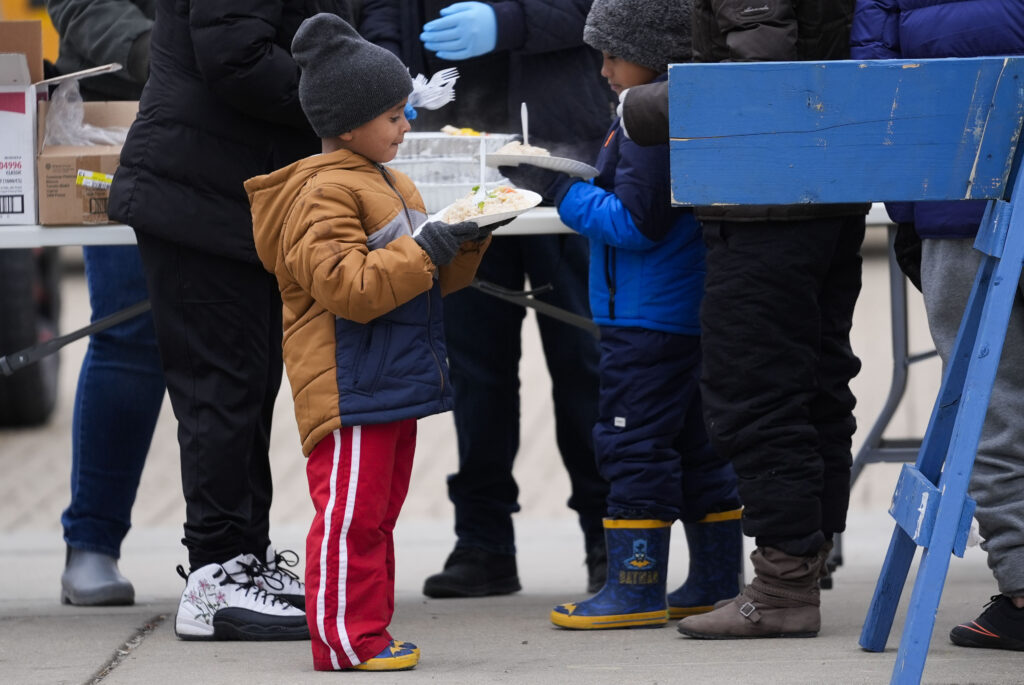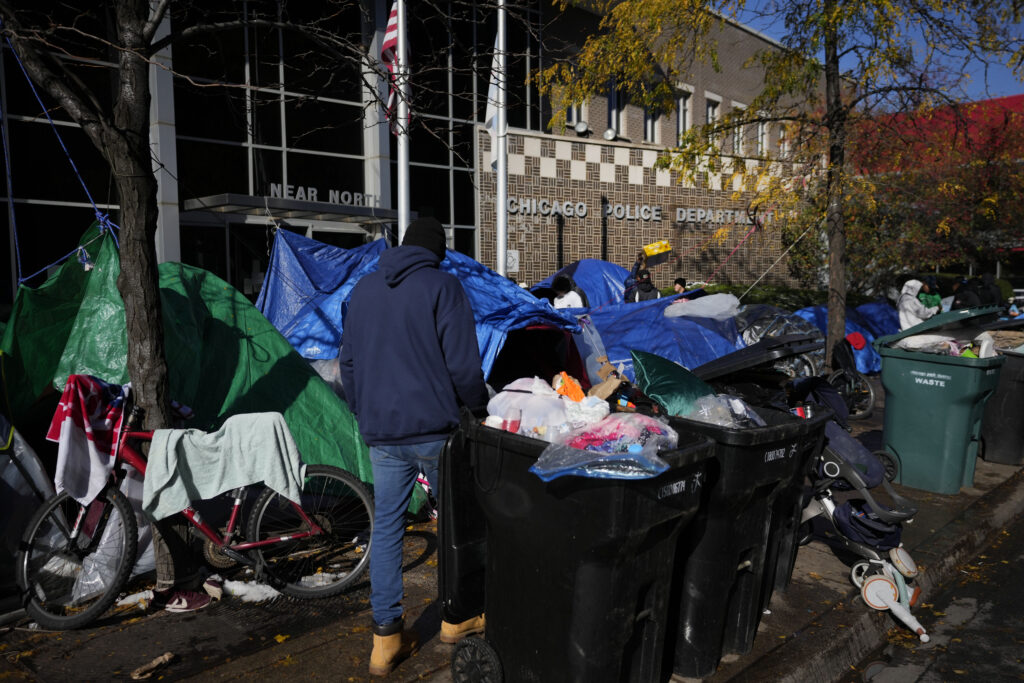Mayor Brandon Johnson is changing his approach to handling the thousands of immigrants flooding into Chicago, telling city council members on Friday that the city will no longer set up shelter spaces for asylum-seekers.
Johnson told aldermen in small groups that creating new shelters costs far too much money. The city-run shelter system has been at capacity for months, as more than 34,000 immigrants have arrived in the Windy City since August 2022.
The mayor confirmed in the meetings that there had been a pause on creating new shelters since Dec. 22, 2023, and now the administration will stop building new shelters or industrial tents for migrants altogether. Instead, Johnson is turning to churches and individual people to provide beds for asylum-seekers.

A briefing report obtained by Politico details that 608 buses have arrived from Gov. Greg Abbott (R-TX) and 501 since May 21, 2023. There are 28 shelters in operation within the city, holding 14,967 shelter members as of Jan. 16. Of that number, more than 5,000 migrants are minors. As of Jan. 16, zero beds have become available, and 216 single beds are needed.
Johnson also issued new shelter eviction updates after delaying the 60-day limit policy for the first group of immigrants on Jan. 12. The group of about 50 migrant shelter residents who had been in the system since 2022 and had been required to leave by Jan. 15 were allowed to stay through “at least” Jan. 22.
However, Johnson has once again extended move-outs through Feb. 1 due to weather, but the 60-day limit will go into effect after that date has passed. The report said the administration distributed eviction notices to 7,842 residents.
The change in migrant shelter policies is the latest sign of Democratic cities weakening under mass influxes of immigrants from the southern border. Johnson, as well as mayors from New York City and Denver, have called on the federal government to assist, as they are almost at full capacity.

To alleviate the burden from Chicago, Gov. J.B. Pritzker (D-IL) launched a program offering $17 million in additional funding to suburbs that agree to house immigrants. Pritzker said the millions of dollars in funding will go toward welcome centers, work permit applications, housing, and healthcare.
Since cities such as Chicago have imposed heavy restrictions on homeless immigrant dropoffs due to reaching maximum capacity, bus travel companies from Texas have been circumventing the rules to drop immigrants off in suburbs such as Naperville, Illinois, and Oak Park, Illinois, so that they can board transit systems into the city.
Several villages, including Schaumburg, Illinois, and Elk Grove, Illinois, have passed ordinances preventing immigrants from being housed in hotels. Oak Park began evicting 150 immigrants from a town hotel and the YMCA last year, to be complete by the end of this month.
CLICK HERE TO READ MORE FROM THE WASHINGTON EXAMINER
Johnson joined mayors from all over the nation in Washington, D.C., on Friday, with the Chicago mayor partly working to generate interest in the migrant crisis.
“It’s not sustainable for local economies” to handle the crisis on their own, Johnson told NPR. “You have a speaker of the House right now who is obfuscating his responsibility on behalf of the people of this country.”
